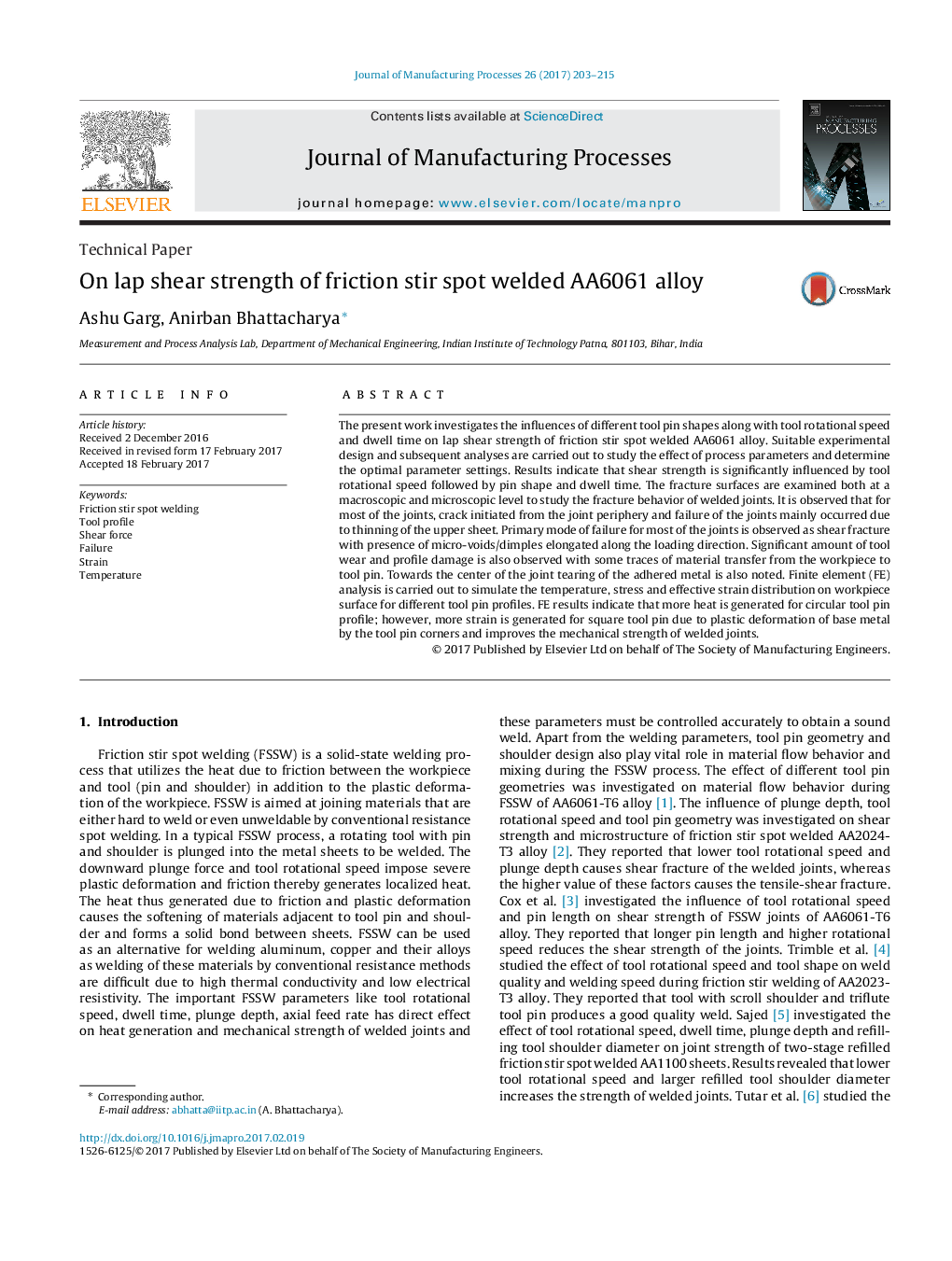| Article ID | Journal | Published Year | Pages | File Type |
|---|---|---|---|---|
| 5469287 | Journal of Manufacturing Processes | 2017 | 13 Pages |
Abstract
The present work investigates the influences of different tool pin shapes along with tool rotational speed and dwell time on lap shear strength of friction stir spot welded AA6061 alloy. Suitable experimental design and subsequent analyses are carried out to study the effect of process parameters and determine the optimal parameter settings. Results indicate that shear strength is significantly influenced by tool rotational speed followed by pin shape and dwell time. The fracture surfaces are examined both at a macroscopic and microscopic level to study the fracture behavior of welded joints. It is observed that for most of the joints, crack initiated from the joint periphery and failure of the joints mainly occurred due to thinning of the upper sheet. Primary mode of failure for most of the joints is observed as shear fracture with presence of micro-voids/dimples elongated along the loading direction. Significant amount of tool wear and profile damage is also observed with some traces of material transfer from the workpiece to tool pin. Towards the center of the joint tearing of the adhered metal is also noted. Finite element (FE) analysis is carried out to simulate the temperature, stress and effective strain distribution on workpiece surface for different tool pin profiles. FE results indicate that more heat is generated for circular tool pin profile; however, more strain is generated for square tool pin due to plastic deformation of base metal by the tool pin corners and improves the mechanical strength of welded joints.
Related Topics
Physical Sciences and Engineering
Engineering
Industrial and Manufacturing Engineering
Authors
Ashu Garg, Anirban Bhattacharya,
